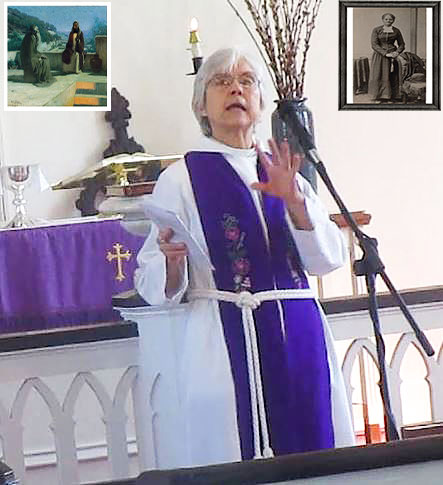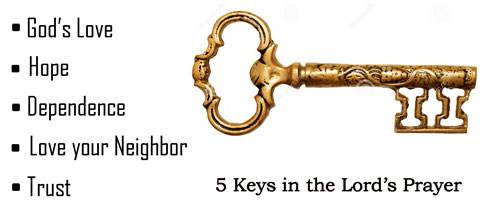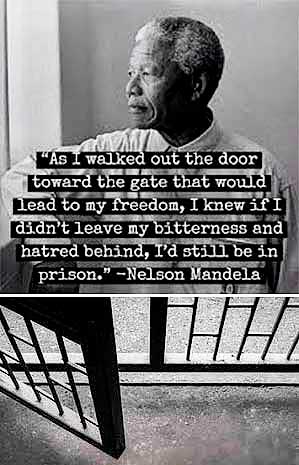
Transformation
Sermon, Proper 28, Year C 2022
Luke 21:5-19, 2 Thessalonians 3:6-13, Psalm 98; Malachi 4:1-2a
Scripture describes the Day of the Lord as a cosmic, universal event, a time of terror, destruction, wars, and natural disasters that will take place before God’s reign on earth is fully realized.
This understanding of The Day of the Lord also informs our understanding of the second coming of Christ, when Jesus will return in glory, vanquishing evil and bringing the fullness of God’s love, peace and rule to this earth.
In the weeks before Advent, and during Advent itself, the lectionary presents us with various Day of the Lord passages that serve as signs of Jesus’ second coming on this earth.
For after all, in the season of Advent, we are waiting and preparing not only for the birth of Jesus, God coming into the world as one of us, to live and die as one of us, but we are also waiting and preparing for Jesus to return in glory and for God’s reign of peace on this earth to at last become a reality.
The Day of the Lord is a big theological idea that is interesting, but we’ve been waiting now for over 2000 years and Jesus has still not returned.
So I’m left to wonder. Why continue to give so much attention to this concept?
At least this idea of The Day of the Lord and the return of Jesus gives us hope that at some point, God will carry out God’s ultimate plan for all of creation, and despite the current evidence to the contrary, all will be well, and all manner of things will be well, as St Julian of Norwich says.
But for me, here’s the real down to earth value of the Day of the Lord.
The Day of the Lord helps us to make sense of difficult times in our own lives, those times when when the world turns upside down, and life as we knew it is gone, our emotional landscapes are transformed and unrecognizable, we are disoriented, and can’t imagine how we’ll manage.
The Covid pandemic had this feel to it for many people, especially early on, when the whole world shut down and no one could really predict what would happen next.
The death of a beloved person in our lives can have this sort of impact.
Or an unexpected incurable illness, or a divorce, and the list goes on.
These times in our lives can be horrible and hopeless. The feeling of isolation, betrayal, grief, and disorientation can turn the present into a desert of depression. These times in our lives can bring debilitating anger and bitterness. These times can bring a vast emptiness in which not even God seems to be present.
Jesus says right up front in today’s gospel that these things are bound to happen, when our lives get turned upside down, when the things we thought were indestructible in our lives get torn apart, like the temple in Jerusalem, and there’s no way to build back what is gone.
How depressing.
But when we think of all these unwelcome changes as The Day of the Lord, then we can have hope!
And here’s why.
The Day of the Lord is a necessary, intermediate step from things as they were to what will be, a time when God’s power and love will transform everything from “death to life, from falsehood to truth, from despair to hope, from fear to trust, from hate to love, from war to peace,” as the World Peace prayer in The New Zealand Prayer Book reads.
That’s what the Day of the Lord is all about—Transformation! Not just change for change’s sake, but transformation with purpose, transformation that leads to new life.
Do these times in our lives wound and scar us? Of course they do! Remember the story of Jacob wrestling with God way back in Genesis? After a night of struggle, daylight comes , the “man” wrestling with Jacob sees that he cannot be defeated. He touches Jacob hip socket, wounding Jacob, and then asks to be released. Jacob asks for a blessing first. When the two part ways, Jacob, who has received a new name, Israel, goes limping off into the sunrise toward his reckoning with his brother Esau. He has been scarred, changed and transformed by the time of wrestling and reckoning with God.
And then there’s Jesus. God resurrected Jesus after Jesus died that horrific death on the cross, and we celebrate the resurrection on Easter Day and every time we gather round God’s table. But we must never forget that Jesus himself, resurrected from the dead, was marked forever by The Day of the Lord that he experienced on the cross. To prove to the disciples that he was no ghost when he appeared to them, he showed them his hands and his side. Even in his resurrected body, he bore the scars of his death on the cross.
How helpful this is to us, when we can go through the hard times in our lives knowing that on the other side of the struggle, the side in which life, truth, hope, trust, love and peace will reign, we will still carry our scars. They mark us as Christ’s own forever.
Our scars become the markers that remind us of God’s power at work, the healing, loving power that is healing us and bringing us out of death into life, an ongoing process of love that God carries out in our lives.
Grief, that deep sorrow over what we have lost and will never have back in the form we have known, can feel like the Day of the Lord I will never forget how Eunice cried so much yesterday at Roger’s funeral. But what an example Eunice sets for us—like Jacob wrestling, like Jesus dying, Eunice just let herself be torn apart by her grief. But Eunice could release herself into that grief because Eunice knows that Roger’s loss, which will mark her forever, is part of the transformation in which God carried Roger and will carry us all out of death into new life.
The Day of the Lord reminds us that we must go through death to get to the life God has for us on the other side of death.
All around us in the natural world, we see God’s creation, when we allow it to exist as God intended from the beginning, we see The Day of the Lord coming and going, leaving scars, bringing transformation.
Something as commonplace as seeing a fallen tree in a walk through the woods—a tree that has died, and yet is bringing forth new life, helps us to think about transformation in our own lives. I have seen tiny new trees growing out of rotting tree stumps. And have you ever looked closely at a fallen log? That log is covered with new life. As funguses transform the log back into earth, mosses grow, creatures feed and find homes, and someday, although the log itself will be gone, new life has come in its place. Nature is in a constant cycle of life, then death, then transformation into new life. Knowing that this transformation out of death into life is real is why even at the grave we can make our song—“Alleluia, Alleluia, Alleluia!”
So today’s passages are realistic. Jesus does not mince words. Hard times are ahead. Destruction is inevitable and unavoidable. The temple will be gone, natural disasters will take place, and the followers of Jesus will face persecution, betrayal and death.
And yet, God will bring new life even out of death—and by their endurance, Jesus tells his followers, they will gain their souls.
“So do not be led astray, do not be terrified but endure,” Jesus reminds his followers. And Paul reminds the Thessalonians that while they wait, they are not to be weary in doing what is right.
The Old Testament prophet Malachi gives us one of the most hopeful and beautiful passages in all of scripture—”But for you who revere my name the sun of righteousness shall rise, with healing in its wings.”
Like the sun rising over Jacob as he goes limping off to meet his brother, like the sunrise on Easter morning over an empty tomb, the sun of righteousness will also rise over us, burning away what has been and bringing to life what God intends to be.
Hope! New life! God’s promise of what is ahead, even in the worst of times.
That’s why Charles Wesley quotes Malachi in the magnificent hymn that we sing in church in what most of the world would consider as a weird Episcopalian custom, waiting to sing Christmas hymns until Christmas day, only after going through the season of Advent. We wait in expectation and then we burst with celebration when the day of Jesus’ birth at last arrives.
The third verse of “Hark! the Herald Angels Sing” goes like this—
“Hail the heav’n born Prince of Peace!
Hail the Son of Righteousness!
Light and life to all He brings,
Ris’n with healing in his wings (there’s Malachi!)
Mild he lays his glory by,
Born that man no more may die,
Born to raise the sons of earth,
Born to give them second birth,
Hark! The herald angels sing
“Glory to the newborn King!”
So now, even as we endure The Day of the Lord, we can join with today’s psalmist as we sing to the Lord a new song, for we know that God has already won the victory, and that our healing and new births, and the healing and new birth of all creation will someday be complete. “Love, the Lord, is on the way.”
Resources:
The 1982 Hymnal, “Hark! the Herald Angels Sing”
Wonder, Love and Praise, “People, look East”
https://liturgy.co.nz/reflections/world-peace-prayer
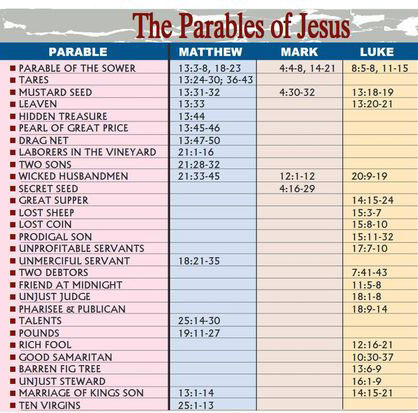


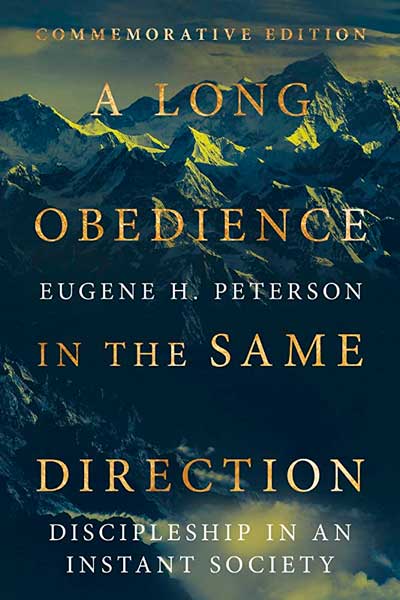 I like Eugene Peterson’s explanation of repentance in his book, Long Obedience in the Same Direction.
I like Eugene Peterson’s explanation of repentance in his book, Long Obedience in the Same Direction.
 The Dalai Lama has said that “once committed, actions will never lose their potentiality.”
The Dalai Lama has said that “once committed, actions will never lose their potentiality.”

